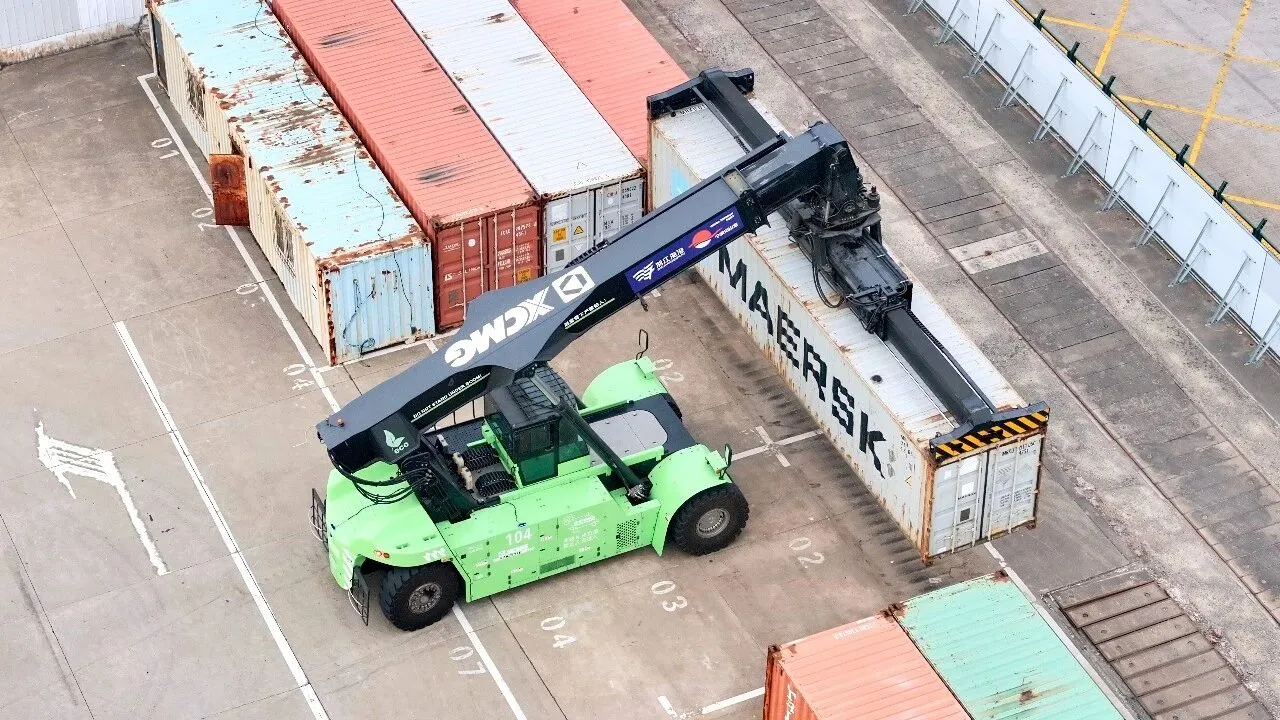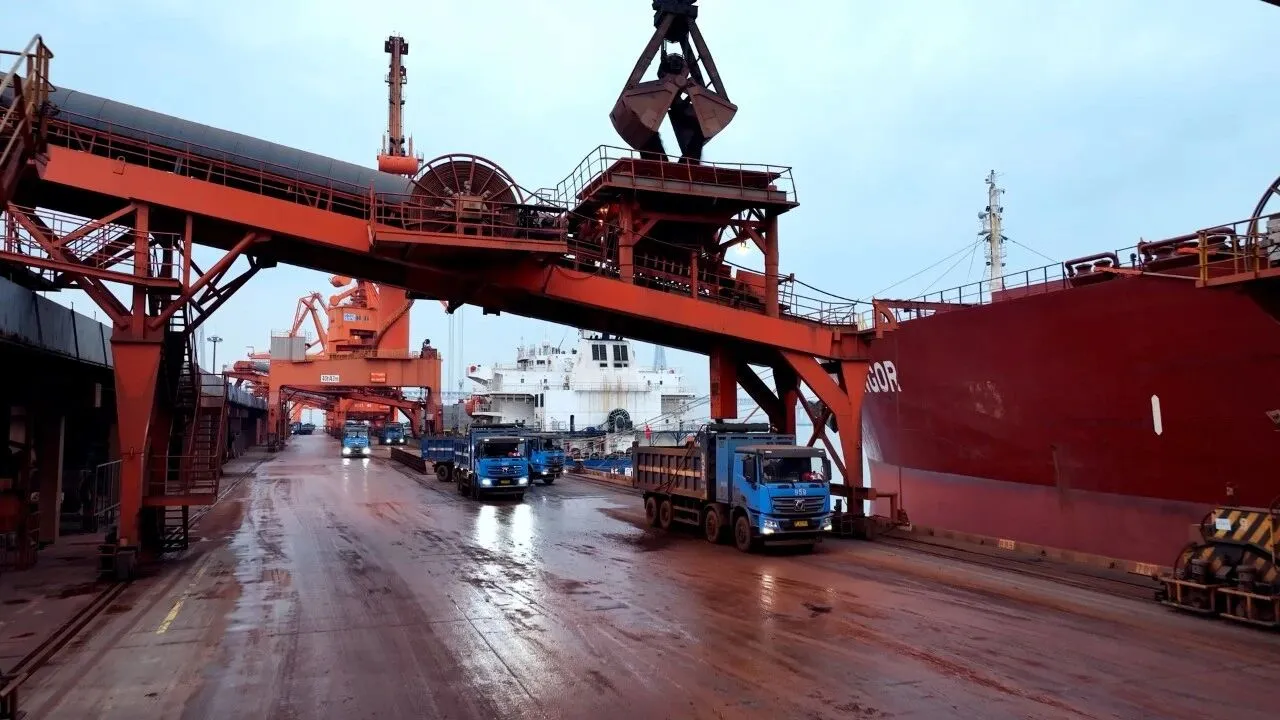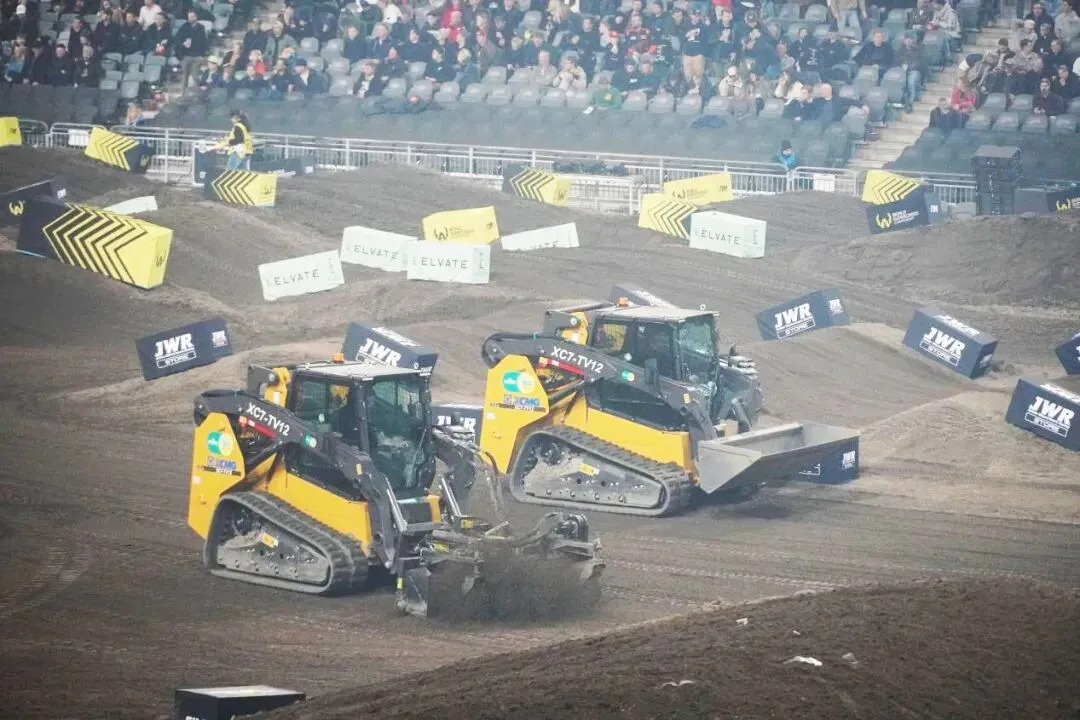A Guide to Wire Rope Replacement
Buying new crane ropes is a detailed and thorough process. While it may
be time-consuming, wire rope replacement prioritizes safety for your workers,
minimizes downtime on a jobsite, maximizes the lifespan of the crane and avoids
the costly and time-consuming process of getting correct rope onsite and
respooling your crane.
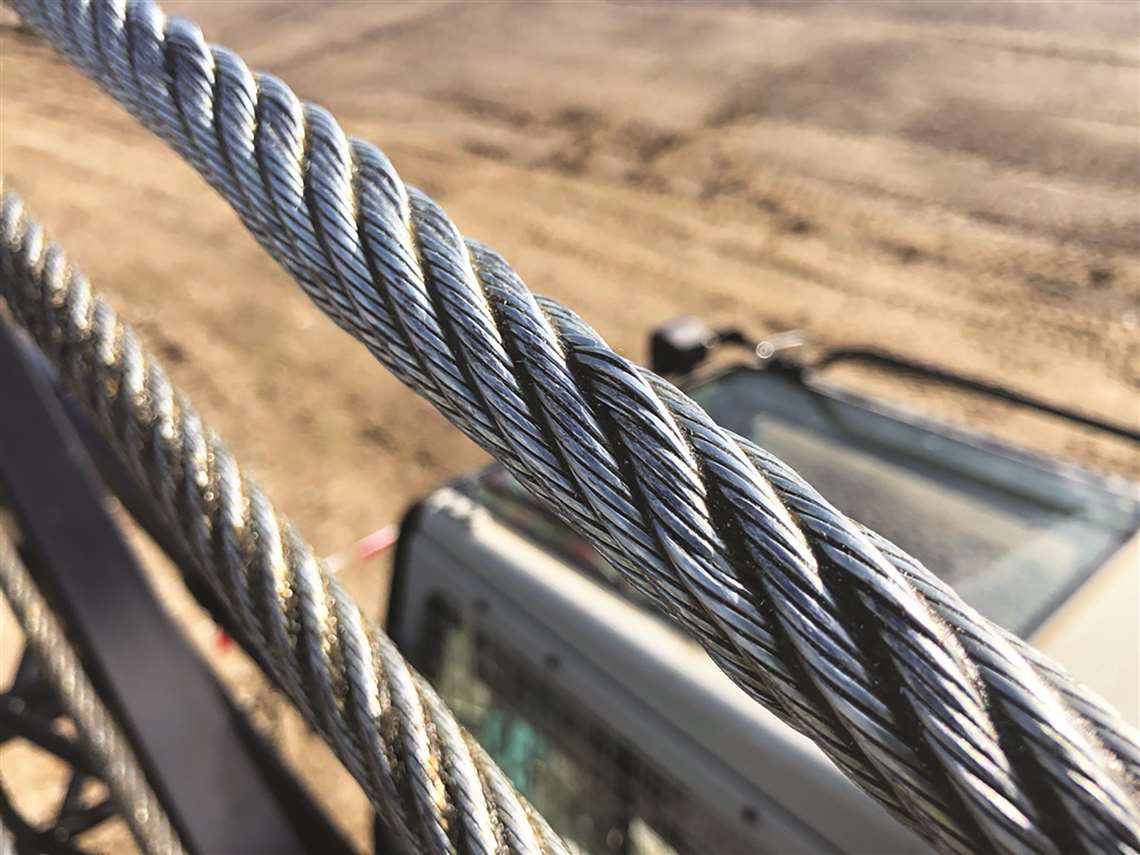
Sometimes, it can seem like the wire rope buying process is overly
complicated. This is done on purpose to avoid as many issues as possible when
the new rope is installed. The reason for that is so buyers avoid putting the
wrong types of ropes on cranes and unnecessarily increasing the risk of
injuries to workers or damage to loads being lifted. The processes are to make
sure to prevent that added risk and put the correct rope on the correct
machine, per Original Equipment Manufacturer (OEM) specifications.
When making the initial contact regarding wire rope replacement, be
prepared to answer the following questions:
- Is your crane
down?
- Is this a routine
replacement or is this an emergency?
- What type of
crane is the rope going on?
- What model
crane is the rope going on?
- What diameter
and length is the replacement rope?
- Is there an end
fitting?
- Which winch is it that’s being replaced?
Wire rope specialists ask these questions to understand your circumstances
and what your needs are. With this information, they are better prepared to get
the absolute correct rope.
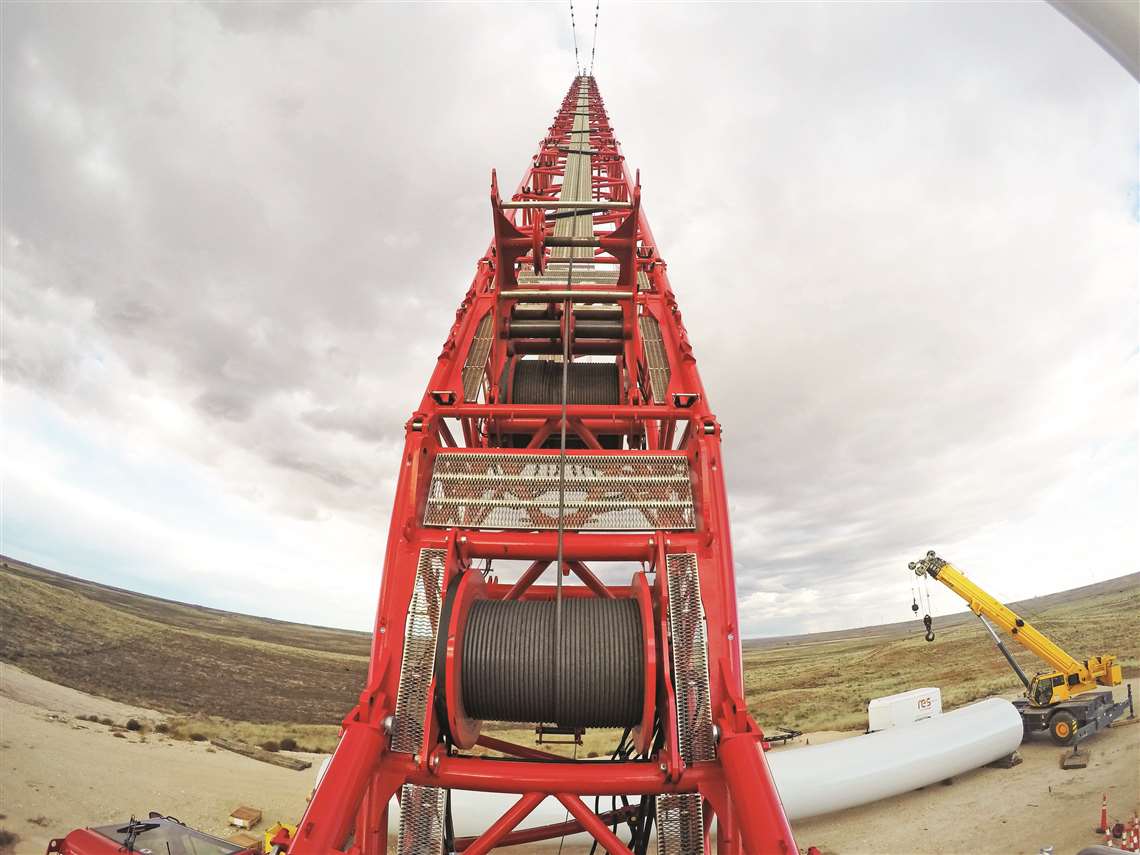
Crane rope on drum
Most of the time, the
customer should have access to their crane’s operations manual that will show
what rope diameter and length is specified. The customer may have to measure or
come up with his own calculations on length. The crane manufacturer is going to
make a specific drum for that specific type of wire rope.
The rope has to be specific
to the lagging of the drum for that machine, which is why there are multiple
variations for each size of wire rope because each kind is specific to the type
of crane, and it shouldn’t be substituted. Mazzella will only install the rope that
is the correct brand and tolerance on a particular crane.
Ordering the correct crane
rope will prevent crane rope damage. The wrong rope could cause damage to the
equipment, and at worst, boom failure. On the less severe side, you will have
bad performance or it might not work at all. You could have twist and/or
spooling issues. That could lead to the crane failing altogether, which creates
downtime as you wait for the correct wire rope to be ordered/delivered and
installed.
Many crane owners are
working for somebody else when they’re doing jobs, so if the rope doesn’t work,
they’re paying for work that is not getting done and falling behind schedule.
On the more severe side, you could total your crane and/or
irreparably damage the load being lifted if you use the wrong wire rope. In the
worst-case scenario, using the incorrect rope could result in severe injury
and/or the loss of life.
Sometimes, customers assume
that there’s a one-size-fits-all replacement, that if it’s a non-rotating rope,
it should work on every application. There’s a lot of misinformation on what
will work and what won’t work. With our experience and access to all brands of
wire rope, Mazzella guarantees we can get you the right rope for your cranes.
If Mazzella isn’t comfortable with the project, we won’t supply the wire rope.
Ordering the wrong rope
If the wrong wire rope is
ordered and delivered, it could be hours or days before the correct rope is on
location. Especially with a lot of the larger cranes, manufacturers are
shipping model-specific ropes all over the country, and depending on location
and money, that could cause delays on your jobsite.
With our large inventory of
rope, Mazzella can have a new spool of wire on a truck and out for delivery in
a matter of hours. Avoid the pitfalls of ordering the wrong crane rope and
you’ll have a new spool of wire rope on its way. Once the order process is
done, what can your company do to prepare for delivery and installation?
As much as Mazzella can be
prepared on our end, the customer needs to be ready for installation so the
process can go as smoothly and safely as possible.
You have to make sure the technicians have the requisite space to
perform their duties. The easier it is for the installers to get on-site, get
to work and finish their responsibilities, the faster your company can get back
up and running.
It is a good idea to give management the proper notice of when
the installer will be on-site, have the necessary technicians on-site to help
the installer with the rope replacement and make sure the installer/technicians
have a clear working space.
There’s a lot of downtime
associated with making a mistake in the preparation process, so the more
prepared you can be for the install, the better. You don’t want a situation
where your crane is inactive because of an oversight or completely avoidable
situation.
Also, Mazzella recommends
you measure your sheaves with a sheave gauge. A sheave gauge will help you
measure the wear of the root, the amount of wear on the groove wall and the
diameter of the wire rope.
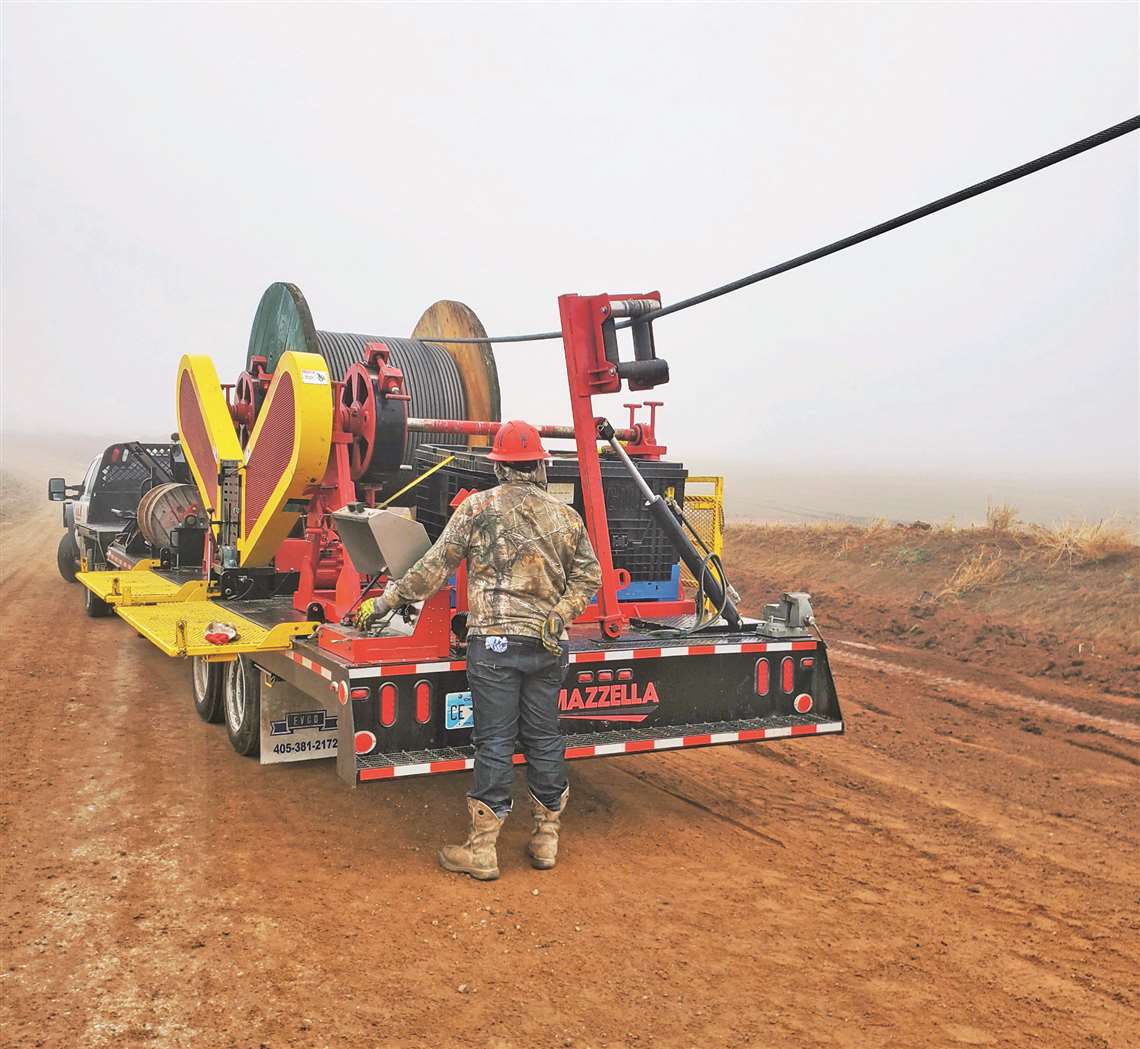
Installing new wire rope
After ordering the correct rope and having the requisite space and
approval for installation, how long will it take to remove and replace the old
rope when the technician, assistants and supplies arrive onsite? For some small
cranes, the timeframe could be as little as 45 minutes, but for larger cranes,
removing the old rope and installing the new one could be a several-hour
process.
The installation process is very specific to:
- the application
- the location
- what’s being
installed
- what winch it’s
being installed on
There’s a lot of factors that go into a successful crane rope
installation. The most important thing is the quicker your supplier responds to
your order and gets a rope on location, the quicker that rope gets installed
properly, saving time and money. Downtime is the key, and it could cost
companies tens of thousands of dollars per day if their crane(s) are
inoperable.
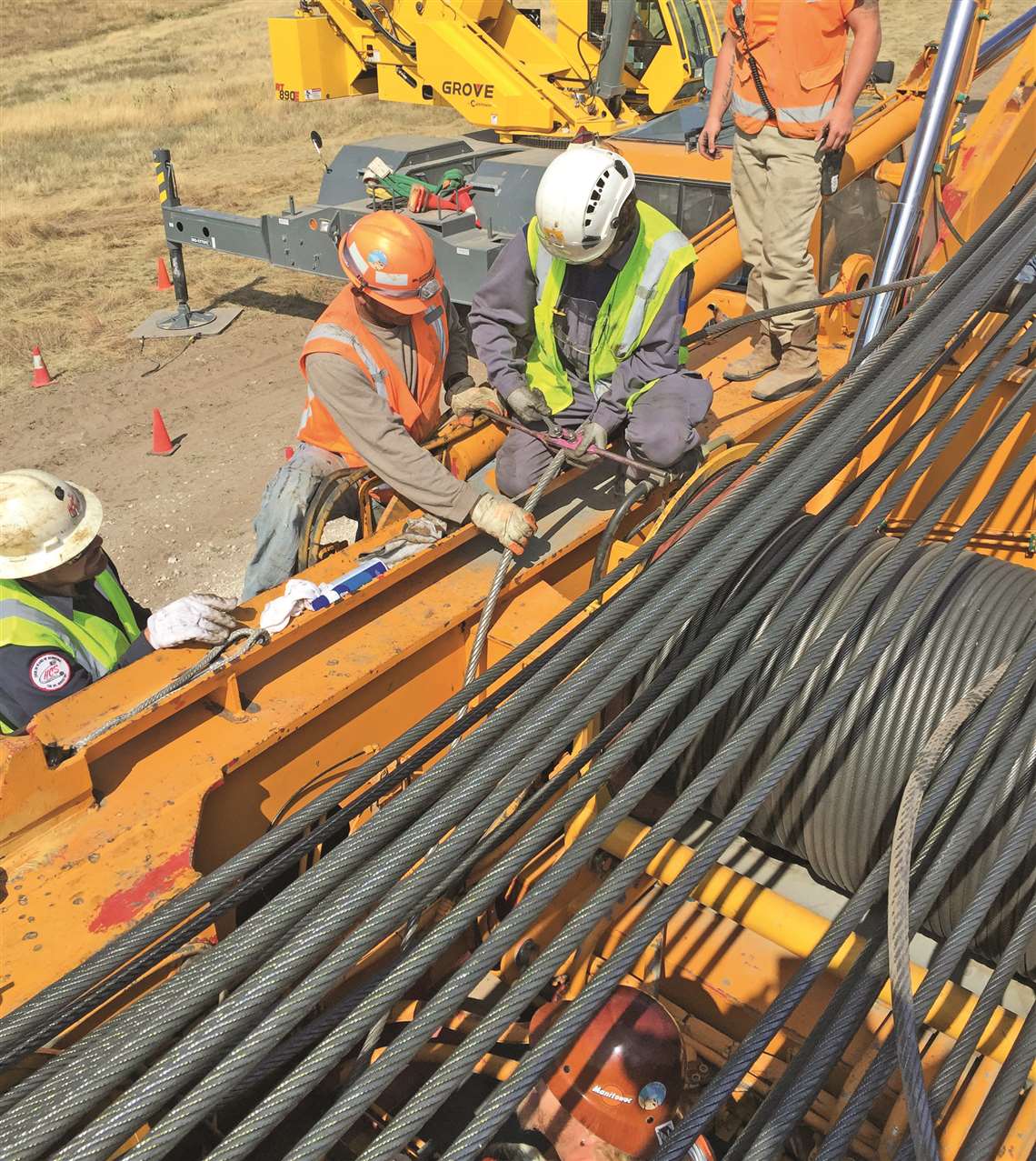
Testing after installation
Once a new crane rope is
installed, a break-in period or tension period is recommended to make sure
everything is performing correctly, and help you avoid shock-loading the newly
installed wire rope. The break-in period is recommended because installation
and spooling equipment are not going to put adequate tension on the rope. A
break-in period consists of putting a low percentage of the working load limit
weight on the rope for several lift cycles, and running the blocks up to the
boom length (working height) and back down. For the most specific guidelines on
the breaking-in process for your new wire rope, refer to the manufacturer’s
recommendations.
If a brand-new wire rope on
a crane is not broken in properly before lifting a large load, it potentially
could damage the rope and render useless the equipment that was just installed
on your machine.

